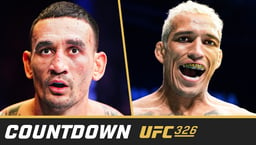
Issue 109
December 2013
Gareth A Davies MMA and Boxing Correspondent for The Daily Telegraph, London, on the level of judging in mixed martial arts
Most of us think we could slip into the judges’ chairs and officiate. But how many times have you turned to your pal and said, ‘That was close; how have you got it?’
You only have to step into Marc Ratner’s office, at Zuffa HQ in Las Vegas, to see how much the head of the UFC’s regulatory affairs has the governance of fight sports in his blood.
Adorning the walls are pictures of him with all the great stars of the UFC over the last few years. And there are photos of him as a teenage boy with the heavyweight boxing champions Sonny Liston, Floyd Patterson and Muhammad Ali.
Seven years ago, having been the director of the Nevada State Athletic Commission and involved there for 20 years, he transferred his skills and peerless contact book to the UFC. That’s why he still has a powerful voice when it comes to his opinions on the Nevada State Athletic Commission.
As well as his aim to get MMA legalized in New York State, at the top of his list of priorities is to maintain progress in one area: judging. He believes it could be intrinsic to the long-term health of the sport, although it’s a long way from the level at which he wants it. And that’s pleasing to hear.
Judging is on Ratner’s radar the entire time. While the commissions appoint judges and referees, Ratner observes them in detail at every event. When he returns to HQ he has his own red and black books in which notes and marks are made. Unlike some judges, Ratner has the reputation for never making the wrong decision.
My point here is this: don’t ever think judges – and referees – are not under constant observation.
And post-fight, Ratner goes back to the drawing board each time, quite literally sometimes. “Everywhere we go I’m taking notes on the local judges to see how their scores are,” he explains. “It’s very important we keep on deepening the pool of available officials.”
He has “files full of notes from every show” which focus on everything from the concentration levels of a judge, to the minutiae of their roles. “Concentrating,” he reckons, “is one of the big things.” He wants judges to work on their five-minute concentration levels. He has a point.
Ratner revealed that from starting to judge in smaller MMA shows, to marking the cards in professional fights could be attained within just two years if judges prove exceptional. They can be fast-tracked, but Ratner revealed that normal practice is for the new judge to attend professional shows, where they shadow established judges. The scores of apprentice officials are then recorded and compared.
And the monitors which judges now have Octagonside are a major advancement, Ratner reckons. The UFC, which introduced them three years ago, is the only fight organization in the world, as far as he knows, to have them. Yet there are still no replays and no commentary on the monitors.
Given his views on concentration levels, would Ratner consider adding a statistics screen – optional to the judges – if they wanted to view it between rounds? No, he says, not at present.
Choosing judges, and indeed, why men and women opt to be judges, is something Ratner often ponders over. “A lot of them have MMA backgrounds,” he says. “If not MMA then either karate or jiu-jitsu – and there are some boxing guys, but it takes a long time for them to really learn how to judge.”
Australia and Brazil have commissions; every US state oversees its officials. Ratner works closely with them all, and is urging detailed video assessment of judges’ decisions. He wants analysis with experienced fighters, and senior officials to find uniformity and understanding.
A debated decision that divides opinion is not the issue. As long as we have human beings judging a sport there will always be a variance of opinion.
It is when a round has been scored by a judge that departs from the view of the rest of humankind that Ratner is up on his toes in exasperation. “The key is that in a three-round fight, one wrongly awarded round can determine who wins or loses. It’s different in a 12-round boxing bout. It just has to be right.”
Spot on.
...









